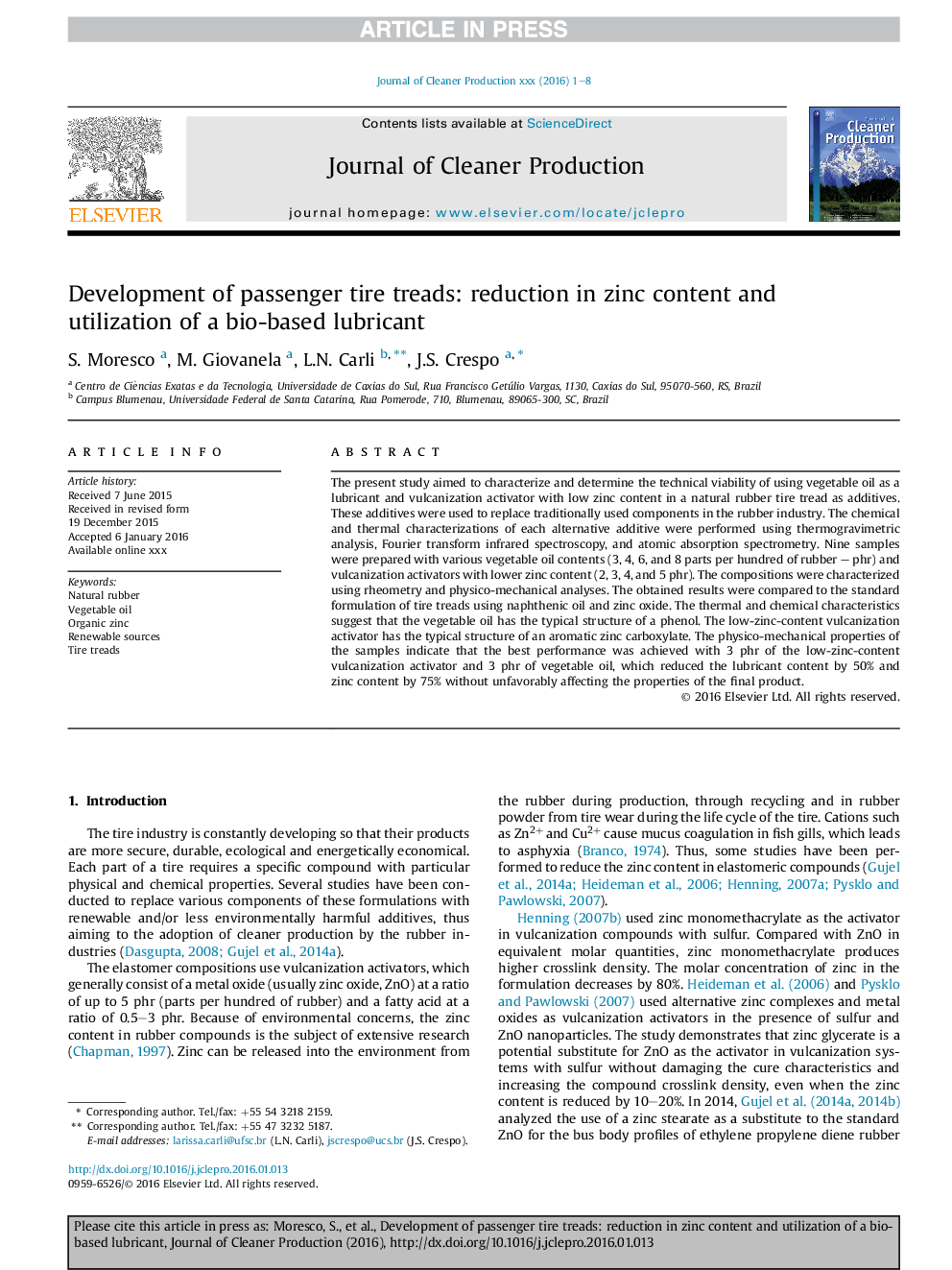| Article ID | Journal | Published Year | Pages | File Type |
|---|---|---|---|---|
| 8102606 | Journal of Cleaner Production | 2016 | 8 Pages |
Abstract
The present study aimed to characterize and determine the technical viability of using vegetable oil as a lubricant and vulcanization activator with low zinc content in a natural rubber tire tread as additives. These additives were used to replace traditionally used components in the rubber industry. The chemical and thermal characterizations of each alternative additive were performed using thermogravimetric analysis, Fourier transform infrared spectroscopy, and atomic absorption spectrometry. Nine samples were prepared with various vegetable oil contents (3, 4, 6, and 8 parts per hundred of rubber - phr) and vulcanization activators with lower zinc content (2, 3, 4, and 5Â phr). The compositions were characterized using rheometry and physico-mechanical analyses. The obtained results were compared to the standard formulation of tire treads using naphthenic oil and zinc oxide. The thermal and chemical characteristics suggest that the vegetable oil has the typical structure of a phenol. The low-zinc-content vulcanization activator has the typical structure of an aromatic zinc carboxylate. The physico-mechanical properties of the samples indicate that the best performance was achieved with 3Â phr of the low-zinc-content vulcanization activator and 3Â phr of vegetable oil, which reduced the lubricant content by 50% and zinc content by 75% without unfavorably affecting the properties of the final product.
Related Topics
Physical Sciences and Engineering
Energy
Renewable Energy, Sustainability and the Environment
Authors
S. Moresco, M. Giovanela, L.N. Carli, J.S. Crespo,
